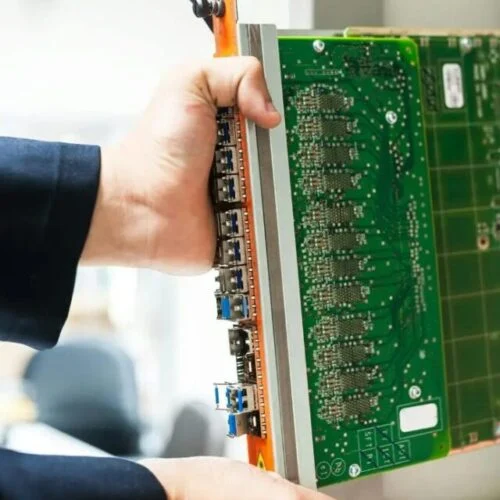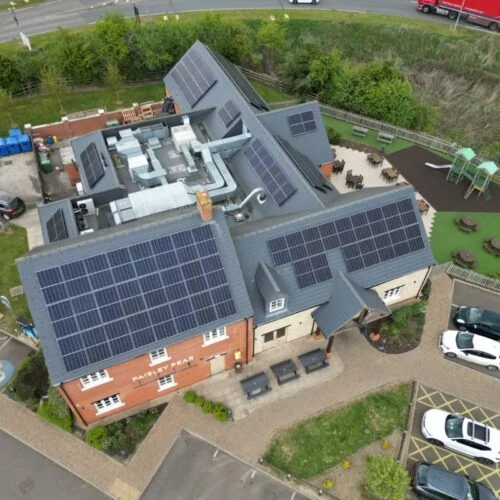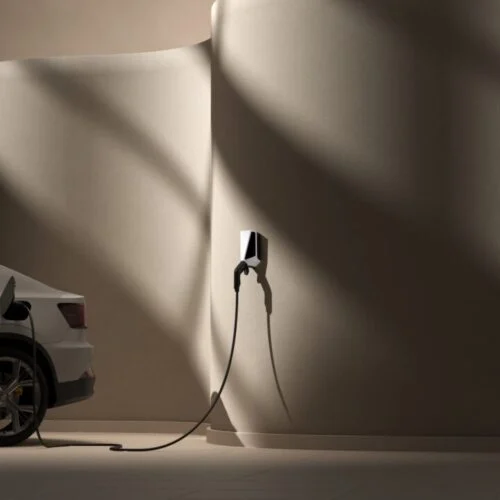The UK has set a target of installing 300,000 public EV chargepoints by 2020, a goal that the nation is on track to meet. According to the UK’s public spending watchdog the National Audit Office, the rate at which chargepoints are currently being installed is in line with the pace needed to meet that target.
However, there is a hidden but increasingly problematic threat to the usefulness of the UK’s public charging network: EV cable theft. Across the UK, public EV chargers are increasingly becoming a target for theft and vandalism, with a number of councils reporting a sharp uptick in the number of EV chargepoints being damaged in recent months.
None of the local authorities we contacted were able to provide precise statistics on the number of EV cable thefts in their region ahead of the publication of this article. However, a previously published response to a Freedom of Information (FOI) request from West Mercia Police revealed that the number of reported EV charging cable thefts in January 2025 alone was more than those reported across the entirety of 2023, with five of these thefts reported in the first month of this year compared to just one in January 2023.
The cost of the issue
Thieves are targeting the cables to strip the copper from inside them and sell it as scrap metal; while the copper inside has a resale value of less than £10, repairing the cables can cost operators can reach the hundreds or even thousands. Instavolt stated earlier this year that across 13 of its EV charging sites, cables had been damaged or stolen 33 times in the last year, with around 100 cables being targeted in the West Midlands alone since November 2023, at a cost of around £410,000 to the company.
The cost is not purely financial as it delivers a blow to consumer confidence; with chargepoint availability a major – albeit largely blown out of proportion – concern preventing prospective EV drivers from making the switch, out of order chargepoints add more fuel to an already blazing fire of public concern.
Thieves are, in some cases, also taking chargers from private homes as well. Some EV drivers have reported that this has seen them spend large sums on public charging while their at home charger is repaired.
Adapt and overcome
To fully understand how to tackle this issue, it is critical that the industry has complete data on the severity and nature of the concern. The EV Network, an electric vehicle infrastructure development and investment company, has created a central reporting platform for chargepoint operators to report cable theft, with the aim of building a collective database to provide useful data on crime hotspots and provide law enforcement with evidence for prosecution.
The issue has seen a specialised chargepoint security subsection of the market beginning to rise in recent years. DeterTech, a firm active in the solar sector (as covered by our sister site PV-Tech), has recently expanded into the EV charging infrastructure market by introducing its SmartWater forensic marking technology into EV cables. SmartWater works by surrounding the cable with a liquid that is invisible to the naked eye, but glows under UV light, making it easier for police forces to connect criminals to the scene of the crime.
Meanwhile, US-based firm ChargePoint unveiled a new suite of security features for charging infrastructure earlier this year. These include new cut-resistant cables designed to make the process of removing EV cables difficult or impossible, as well as the ChargePoint Protect, an alarm system built into EV chargepoints that detects cable tampering, displays aggressive warnings on the unit’s screens while playing alarms from the built in speakers, and alerts operators to tampering via email or SMS updates. Notably, this is available for free as a cloud-based software update for owners of compatible systems, providing an easily accessible security upgrade.
To ensure public confidence in the security of the EV charging network, the government could mandate that new EV charging infrastructure be fitted with advanced security systems such as these to deter, prevent, and catch criminals targeting these systems. Charging network Be.EV announced last year that it had partnered with Derbyshire Police and EV charging space specialist Formula Space to launch the Charging Hub Intelligent Protection initiative (CHIP), in which a mobile CCTV system and tannoy speakers have been installed at a Be.EV hub in Chesterfield to monitor and deter criminals.
The EV Network is calling on the chargepoint industry to put forward a united and proactive response to rising chargepoint cable theft, stating that it is imperative that alongside security solutions from hardware manufacturers and deterrents from land owners, law enforcement must take the issue of cable theft more seriously, and chargepoint operators and investors share data and report incidents using the newly created database. Sentencing guidelines on theft have recently been amended to highlight that, in cases where infrastructure, including EV charging facilities, is disrupted as the result of theft, sentences should be harsher to reflect the impact to the public.
For home charger users, a number of solutions have come to market; alongside the usual suspects of various locking devices and cages to surround wall boxes, one Welsh startup is addressing the twin issues of cable theft and lack of driveway availability with a roadside charging offer that prevents trip hazards and ensures that the cable cannot be pulled out or cut by thieves.
Our publisher, Solar Media, will soon launch a brand-new site dedicated to global EV charging infrastructure developments. Called EV Infrastructure News, the site will track market trends, technological breakthroughs and project developments from around the globe. Please visit and follow the official LinkedIn page to learn more.





